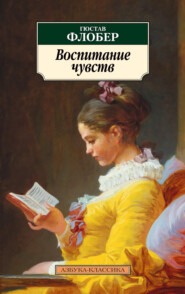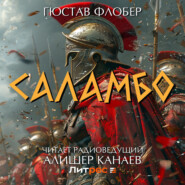По всем вопросам обращайтесь на: info@litportal.ru
(©) 2003-2024.
✖
Herodias
Настройки чтения
Размер шрифта
Высота строк
Поля
The proconsul feigned not to hear this remark. The fortune of the father depended, in a way, on the corrupt influence of the son; and through him it was possible that Antipas might be able to procure for the proconsul very substantial benefits, although the glances that he cast about him were defiant, and even venomous.
But now a new tumult arose just within the gates. A file of white mules entered the courtyard, mounted by men in priestly garb. These were the Sadducees and the Pharisees, who were drawn to Machaerus by the same ambition: the one party hoping to be appointed public sacrificers, the other determined to retain those offices. Their faces were dark, particularly those of the Pharisees, who were enemies of Rome and of the tetrarch. The flowing skirts of their tunics embarrassed their movements as they attempted to pass through the throng; and their tiaras sat unsteadily upon their brows, around which were bound small bands of parchment, showing lines of writing.
Almost at the same moment, the soldiers of the advance guard arrived. Cloth coverings had been drawn over their glittering shields to protect them from the dust. Behind them came Marcellus, the proconsul’s lieutenant, followed by the publicans, carrying their tablets of wood under their arms.
Antipas named to Vitellius the principle personages surrounding them: Tolmai, Kanthera, Schon, Ammonius of Alexandria, who brought asphalt for Antipas; Naaman, captain of his troops of skirmishers, and Jacim, the Babylonian.
Vitellius had noticed Mannaeus.
“Who is that man?” he inquired.
The tetrarch by a significant gesture indicated that Mannaeus was the executioner. He then presented the Sadducees to the proconsul’s notice.
Jonathas, a man of low stature, who spoke Greek, advanced with a firm step and begged that the great lord would honour Jerusalem with a visit. Vitellius replied that he should probably go to Jerusalem soon.
Eleazar, who had a crooked nose and a long beard, put forth a claim, in behalf of the Pharisees, for the mantle of the high priest, held in the tower of Antonia by the civil authorities.
Then the Galileans came forward and denounced Pontius Pilate. On one occasion, they said, a mad-man went seeking in a cave near Samaria for the golden vases that had belonged to King David, and Pontius Pilate had caused several inhabitants of that region to be executed. In their excitement all the Galileans spoke at once, Mannaeus’s voice being heard above all others. Vitellius promised that the guilty ones should be punished.
Fresh vociferations now broke out in front of the great gates, where the soldiers had hung their shields. Their coverings having now been removed, on each shield a carving of the head of Caesar could be seen on the umbo, or central knob. To the Jews, this seemed an evidence of nothing short of idolatry. Antipas harangued them, while Vitellius, who occupied a raised seat within the shadow of the colonnade, was astonished at their fury. Tiberius had done well, he thought, to exile four hundred of these people to Sardinia. Presently the Jews became so violent that he ordered the shields to be removed.
Then the multitude surrounded the proconsul, imploring him to abolish certain unjust laws, asking for privileges, or begging for alms. They rent their clothing and jostled one another; and at last, in order to drive them back, several slaves, armed with long staves, charged upon them, striking right and left. Those nearest the gates made their escape and descended to the road; others rushed in to take their place, so that two streams of human beings flowed in and out, compressed within the limits of the gateway.
Vitellius demanded the reason for the assembling of so great a throng. Antipas explained that they had been invited to come to a feast in celebration of his birthday; and he pointed to several men who, leaning against the battlements, were hauling up immense basket-loads of food, fruits, vegetables, antelopes, and storks; large fish, of a brilliant shade of blue; grapes, melons, and pyramids of pomegranates. At this sight, Aulus left the courtyard and hastened to the kitchens, led by his taste for gormandizing, which later became the amazement of the world.
As they passed the opening to a small cellar, Vitellius perceived some objects resembling breast-plates hanging on a wall. He looked at them with interest, and then demanded that the subterranean chambers of the fortress be thrown open for his inspection. These chambers were cut into the rocky foundation of the castle, and had been formed into vaults, with pillars set at regular distances. The first vault opened contained old armour; the second was full of pikes, with long points emerging from tufts of feathers. The walls of the third chamber were hung with a kind of tapestry made of slender reeds, laid in perpendicular rows. Those of the fourth were covered with scimitars. In the middle of the fifth cell, rows of helmets were seen, the crests of which looked like a battalion of fiery serpents. The sixth cell contained nothing but empty quivers; the seventh, greaves for protecting the legs in battle; the eighth vault was filled with bracelets and armlets; and an examination of the remaining vaults disclosed forks, grappling-irons, ladders, cords, even catapults, and bells for the necks of camels; and as they descended deeper into the rocky foundation, it became evident that the whole mass was a veritable honeycomb of cells, and that below those already seen were many others.
Vitellius, Phineas, his interpreter, and Sisenna, chief of the publicans, walked among these gloomy cells, attended by three eunuchs bearing torches.
In the deep shadows hideous instruments, invented by barbarians, could be seen: tomahawks studded with nails; poisoned javelins; pincers resembling the jaws of crocodiles; in short, the tetrarch possessed in his castle munitions of war sufficient for forty thousand men.
He had accumulated these weapons in anticipation of an alliance against him among his enemies. But he bethought him that the proconsul might believe, or assert, that he had collected this armoury in order to attack the Romans; so he hastened to offer explanations of all that Vitellius had observed.
Some of these things did not belong to him at all, he said: many of them were necessary to defend the place against brigands and marauders, especially the Arabs. Many of the objects in the vault had been the property of his father, and he had allowed them to remain untouched. As he spoke, he managed to get in advance of the proconsul and preceded him along the corridors with rapid steps. Presently he halted and stood close against the wall as the party came up; he spoke quickly, standing with his hands on his hips, so that his voluminous mantle covered a wide space of the wall behind him. But just above his head the top of a door was visible. Vitellius remarked it instantly, and demanded to know what it concealed.
The tetrarch explained that the door was fastened, and that none could open it save the Babylonian, Jacim.
“Summon him, then!” was the command.
A slave was sent to find Jacim, while the group awaited his coming.
The father of Jacim had come from the banks of the Euphrates to offer his services, as well as those of five hundred horsemen, in the defence of the eastern frontier. After the division of the kingdom, Jacim had lived for a time with Philip, and was now in the service of Antipas.
Presently he appeared among the vaults, carrying an archer’s bow on his shoulder and a whip in his hand. Cords of many colours were lashed tightly about his knotted legs; his massive arms were thrust through a sleeveless tunic, and a fur cap shaded his face. His chin was covered with a heavy, curling beard.
He appeared not to comprehend what the interpreter said to him at first. But Vitellius threw a meaning glance at Antipas, who quickly made the Babylonian understand the command of the proconsul. Jacim immediately laid both his hands against the door, giving it a powerful shove; whereupon it quietly slid out of sight into the wall.
A wave of hot air surged from the depths of the cavern. A winding path descended and turned abruptly. The group followed it, and soon arrived at the threshold of a kind of grotto, somewhat larger than the other subterranean cells.
An arched window at the back of this chamber gave directly upon a precipice, which formed a defence for one side of the castle. A honeysuckle vine, cramped by the low-studded ceiling, blossomed bravely. The sound of a running stream could be heard distinctly. In this place was a great number of beautiful white horses, perhaps a hundred. They were eating barley from a plank placed on a level with their mouths. Their manes had been coloured a deep blue; their hoofs were wrapped in coverings of woven grass, and the hair between their ears was puffed out like a peruke. As they stood quietly eating, they switched their tails gently to and fro. The proconsul regarded them in silent admiration.
They were indeed wonderful animals; supple as serpents, light as birds. They were trained to gallop rapidly, following the arrow of the rider, and dash into the midst of a group of the enemy, overturning men and biting them savagely as they fell. They were sure-footed among rocky passes, and would jump fearlessly over yawning chasms; and, while ready to gallop across the plains a whole day without tiring, they would stop instantly at the command of the rider.
As soon as Jacim entered their quarters, they trotted up to him, as sheep crowd around the shepherd; and, thrusting forward their sleek necks, they looked at him with a gaze like that of inquiring children. From force of habit, he emitted a raucous cry, which excited them; they pranced about, impatient at their confinement and longing to run.
Antipas, fearing that if Vitellius knew of the existence of these creatures, he would take them away, had shut them up in this place, made especially to accommodate animals in case of siege.
“This close confinement cannot be good for them,” said Vitellius, “and there is a risk of losing them by keeping them here. Make an inventory of their number, Sisenna.”
The publican drew a writing-tablet from the folds of his robe, counted the horses, and recorded the number carefully.
It was the habit of the agents of the fiscal companies to corrupt the governors in order to pillage the provinces. Sisenna was among the most flourishing of these agents, and was seen everywhere with his claw-like fingers and his eyelids continually blinking.
After a time the party returned to the court. Heavy, round bronze lids, sunk in the stones of the pavement, covered the cisterns of the palace. Vitellius noticed that one of these was larger than the others, and that when struck by his foot it had not their sonority. He struck them all, one after another; then stamped upon the ground and shouted:
“I have found it! I have found the buried treasure of Herod!”
Searching for buried treasure was a veritable mania among the Romans.
The tetrarch swore that no treasure was hidden in that spot.
“What is concealed there, then?” the proconsul demanded.
“Nothing – that is, only a man – a prisoner.”
“Show him to me!”
The tetrarch hesitated to obey, fearing that the Jews would discover his secret. His reluctance to lift the cover made Vitellius impatient.
“Break it in!” he cried to his lictors. Mannaeus heard the command, and, seeing a lictor step forward armed with a hatchet, he feared that the man intended to behead Iaokanann. He stayed the hand of the lictor after the first blow, and then slipped between the heavy lid and the pavement a kind of hook. He braced his long, lean arms, raised the cover slowly, and in a moment it lay flat upon the stones. The bystanders admired the strength of the old man.
Under the bronze lid was a wooden trap-door of the same size. At a blow of the fist it folded back, allowing a wide hole to be seen, the mouth of an immense pit, with a flight of winding steps leading down into the darkness. Those that bent over to peer into the cavern beheld a vague and terrifying shape in its depths.
This proved to be a human being, lying on the ground. His long locks hung over a camel’s-hair robe that covered his shoulders. Slowly he rose to his feet. His head touched a grating embedded in the wall; and as he moved about he disappeared, from time to time, in the shadows of his dungeon.
The rich tiaras of the Romans sparkled brilliantly in the sunlight, and their glittering sword-hilts threw out glancing golden rays. The doves, flying from their cotes, circled above the heads of the multitude. It was the hour when Mannaeus was accustomed to feed them. But now he crouched beside the tetrarch, who stood near Vitellius. The Galileans, the priests, and the soldiers formed a group behind them; all were silent, waiting with painful anticipation for what might happen.
A deep groan, hollow and startling, rose from the pit.
Herodias heard it from the farther end of the palace. Drawn by an irresistible though terrible fascination, she made her way through the throng, and, reaching Mannaeus, she leant one hand on his shoulder and bent over to listen.
The hollow voice rose again from the depths of the earth.
“Woe to thee, Sadducees and Pharisees! Thy voices are like the tinkling of cymbals! O race of vipers, bursting with pride!”
The voice of Iaokanann was recognised. His name was whispered about. Spectators from a distance pressed closer to the open pit.
“Woe to thee, O people! Woe to the traitors of Judah, and to the drunkards of Ephraim, who dwelt in the fertile valleys and stagger with the fumes of wine!

















